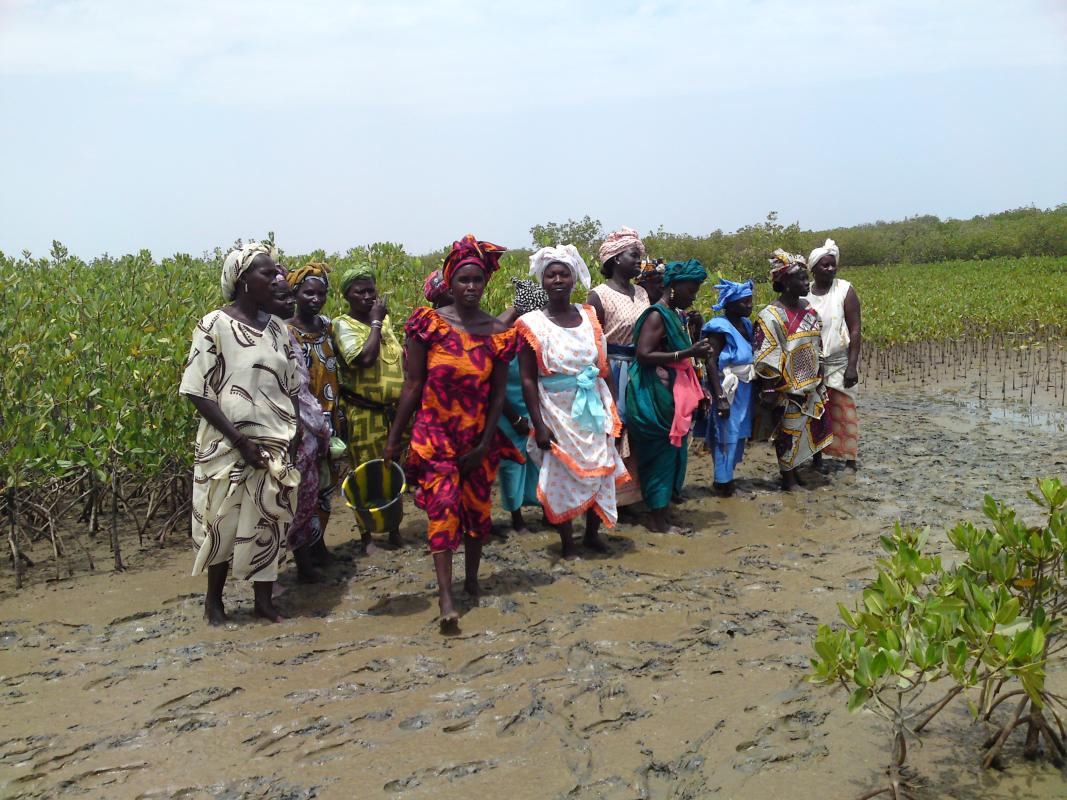
Indigenous African Women Paving the Way for a Sustainable Future
09 Aug 2022
Written by Ms Savanna Strauss
The 9th of August marks both National Women’s Day in South Africa and the International Day of the World's Indigenous Peoples. This year the UN is focusing on the role of role of indigenous women in the preservation and transmission of traditional knowledge.
In their support for today, the Convention on Biological Diversity (CBD) Secretariat observes:
Through their knowledge, indigenous women can provide valuable information to the global community about conservation and sustainable use.
This will be evident in the forthcoming IPBES asessment of the sustainable use of wild species. Its recently released Summary for Policy Makers emhasizes the importance of the sustainable use of wild species to indigenous peoples stating the following:
Sustainable use of wild species is central to the identity and existence of many indigenous peoples and local communities.
Wild species play essential roles in the well-being of many indigenous peoples and local communities. Loss of opportunity to engage in sustainable use of wild species represents an existential threat to indigenous peoples and local communities.
Sustainable use of wild species contributes to the livelihoods of indigenous peoples and local communities through subsistence, as well as trade in informal and formal markets.
Indigenous peoples manage fishing, gathering, terrestrial animal harvesting and other uses of wild species on more than 38 million km² of land in 87 countries.
The central role that indigenous people play through the sustainable use of Africa’s wild species was also highlighted at the Kigali Call to Action from last month’s IUCN Africa Protected Areas Congress:
We call for support to Africa’s Indigenous Peoples, local communities, women, and youth… to sustain the wisdom, traditions, scientific and traditional knowledge, and customary approaches that will result in effective conservation and the long-term resilience of nature, culture, livelihoods and human well-being.
We call for promotion of truly sustainable use of natural resources and investment in building an appropriate wildlife economy, through rights-based approaches and with the involvement of rights-holders and stakeholders.
As the CBD Secretariat further explains:
Particular attention should be paid to the rights and needs of indigenous women, as they are critical for advancing a rights-based approach in conservation policies.
Today, as we celebrate Women’s Day in South Africa and the International Day of Indigenous Peoples, let’s recognise the important contribution of indigenous women in Africa to ensuring that the use of wild species is rights-based, sustainable, and enhances community well-being.
Savanna Strauss, AWEI Junior Officer
We support the free flow of information. Please share:
More content
-

What Foot and Mouth Disease-free means for South Africa’s game meat trade
Ms Lydia Daring Bhebe…Explore the latest developments in South African provinces achieving and maintaining Foot and Mouth Disease (FMD) free status…
Articles -

The world wildlife trade regulator is 50 – here’s what has worked and what needs to change
Daniel Challender…Most countries implement Cites, the Convention on International Trade in Endangered Species of Wild Fauna and Flora as…Articles -

Enabling Sustainable Wildlife Trade
Prof Francis VorhiesEnabling sustainable wildlife trade is a key policy measure for growing Africa's wildlife economy. In this respect, CITES…
Articles -

Has CITES become too complicated to be effective?
Prof Francis VorhiesGovernments agreed to the text of CITES in the 1970s, which is quite straightforward. However, the agreement’s implementation…
Articles -

From poachers to providers: Can Africa's wild meat market save wildlife?
Dr Wiseman NdlovuHave you ever considered how wild meat could be more than just a cultural staple but also a…
Articles -

As a fellow of the African Wildlife Economy Institute (AWEI), I am excited to attend the upcoming 3rd…
Articles -

A theory of change to improve conservation outcomes through CITES
Dr Michael 't Sas-Rolfes…Here we articulate the implied theory of change (ToC) underpinning the design and operation of CITES (Convention on...
2025Research -

Wild Meat Value Chain Integration Systems: Opportunities for Value Chain Formalisation and Scaling in Africa
Dr Wiseman Ndlovu…Establishing a legal, safe and sustainable wild meat sector promises to potentially reduce demand for illegally sourced meat...
2025Research -

AWEI's 2024 Wildlife Economy Dialogue Series
Ms Emily TaylorRediscover 2024: A year of insight and inspiration
In 2024, AWEI proudly hosted three ground-breaking dialogue series in…
Articles
Get updates by email
Through impactful research, stakeholder engagement, and professional development, AWEI is supporting the wildlife economy across Africa. Please subscribe for occasional updates on our work and forthcoming events.
Sign up for a quarterly dose of AWEI insights
In a complex and changing world, AWEI generates strategic ideas, conducts independent analysis on wildlife economies, and collaborates with global scholar-practitioners to provide training and expertise for biodiversity conservation, climate resilience, and inclusive economic opportunities in Africa.
